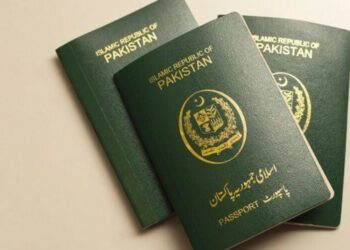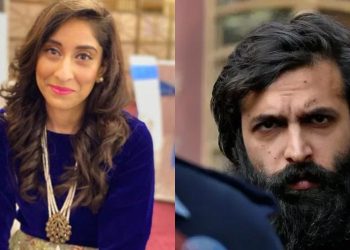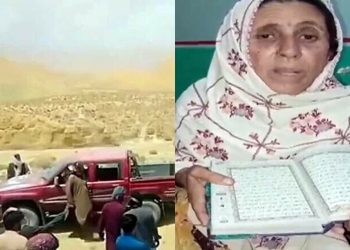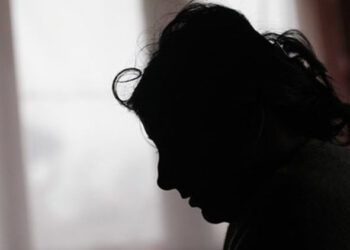Just 40 to 45 kilometers from Quetta, where Bano and Ehsan were shot dead, it became clear that there is no such thing as the rule of law, and that the tribal system is still so powerful that it can hand down any sentence and kill anyone with as many bullets as it wants.
In his recent video, well-known journalist Irshad Bhatti said the incident occurred in the Degari area under the Hanna police station near Quetta. Mobile signals are weak there, and police only go when absolutely necessary—otherwise, they’re attacked.
Irshad Bhatti said the entire incident took place just 40 to 45 kilometers from the house of Chief Minister Sarfraz Bugti. The woman who was killed was named Bano and had five children. She belonged to the Satakzai tribe. Ehsan was 50 years old, also had five children, and belonged to the Smalani tribe.
According to Irshad Bhatti, when the murder happened, the woman was shot 7 times and the man 9 times. Bano was shot in the head, while Ehsan was shot in the chest and stomach. The jirga (tribal council) was held by the Satakzai tribe and led by the tribe’s own chieftain.
Both victims were Baloch who spoke the Brahui language. Their “crime” was that they lived together for four to four and a half months without marriage. Later, the woman returned, and her first husband accepted her back. However, Ehsan disappeared and did not return.
Still, the tribal members from Bano’s side waited for the moment Ehsan would return so they could kill him in the name of honor. When he came back, the girl’s relatives came to kill him, and he sought refuge in the house of the tribal chieftain. The chieftain gave him protection, but as the pressure from the girl’s family increased, he had to make a decision. The chieftain ruled that since the girl had also run away with him, both should be killed.
A deeply painful part of this story is that Bano’s own brothers, uncles, maternal uncles, nephews, and cousins were the ones who fired the bullets. First, they killed Bano, then they killed Ehsan. Now, not a single person is willing to come forward and register an FIR (First Information Report).
The state is the complainant in this case. When the police conducted a raid, the men fled, and the women began pelting stones at the police. These women belonged to both the Satakzai and Smalani tribes—that is, to both victims’ tribes. By throwing stones, they expressed their position: “Why are you here? What we did was right.”
Irshad Bhatti believes that the suspects who were arrested will be released after a few hearings, because no one is willing to pursue the case. In Pakistan, between 500 to 1000 people are killed each year in the name of honor. He said this matter should be handed over to the law, rather than allowing a single person to decide who lives and who dies—as happened in this case.




































